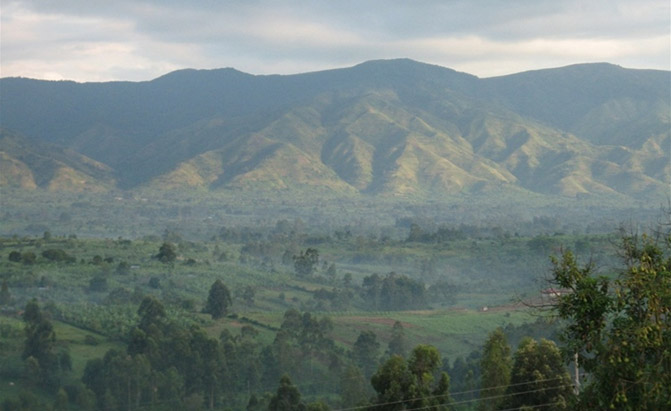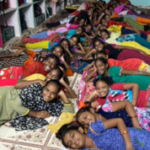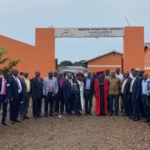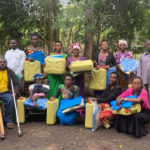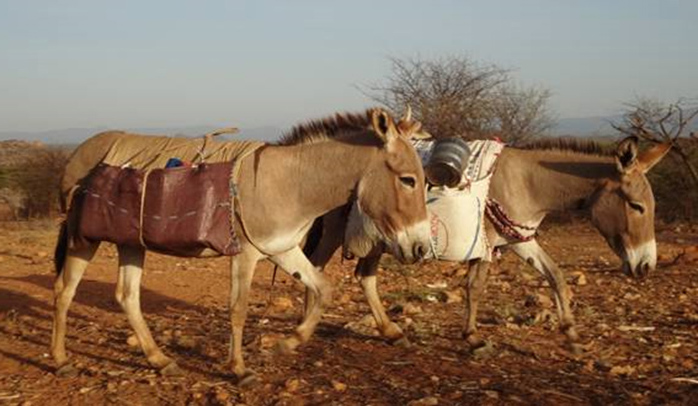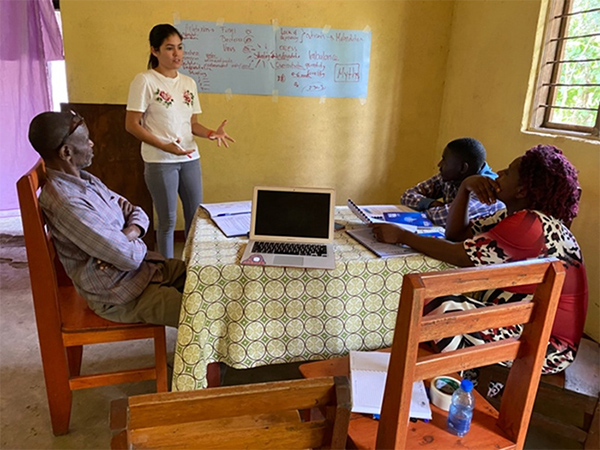
With over 149 million stunted children in the world, according to UNICEF, there is little time to waste. GlobalRise works with communities that are passionate about addressing this “human affliction” – extremely poor families who desperately want to rise above generational poverty.
We are focusing on three areas: Subsaharan Africa, the only area in the world where the rate of stunting is growing; India, hosting the largest population of stunted kids on the planet (63 million); and, Guatemala, the only red stunting zone in the Americas per USAID. Building Digital Food Systems in these areas by 2030, as demonstration platforms for government, we want to provide a new vision for helping extremely poor mountainous communities.
Hearing about our work, delegates from HIMSS (Health Information Management Systems Society) and BMS (Bristol Meyers Squibb) decided to visit our site in Kasese, Uganda. For 2 weeks we hosted an amazing group, showing them the mountain jungles where we work and explaining our vision of the power of a digital food system.

Our journey began at Christalis Home, an orphanage, where we held “Digital Health Day”. All of the children’s medical records, and some staff, were reviewed. GlobalRise was already tracking child growth with anthropometrics so this activity helped to ascertain progress. Karen Salazar, RD, oversaw our work, assisted by Sylvia Klinger, DBA, a board member of GlobalRise, and other orphanage personnel. Elen Blochin, MD, provided clinical reviews of the children and this kicked off our process for data collection with personal health records, managed by Dana Castro, Executive Director of HIMSS Institute. Using a computer, she tested PocketPatientMD’s beta offline health record – yes, we were one of the first to use it! And it worked perfectly! (Thank-you Mark Wein!)
While the clinicians were busy, a family traveling within our group provided games and books to the kids. They were so excited! Groups were huddled in different areas learning new games with Alex, Maya and Ian (father, daughter, son). It was a wonderful experience for everyone to share with each other.

The following day the group met with a local peace-maker and institution builder. Dr Nathaniel Walemba founded a secondary school, the 4-story Kasese Better Living Center and the recently licensed Rwenzori International University. He explained how critical it was to have a local university versus traveling by bus for 8 hours on weekends trying to complete a degree. He also showed us an adjacent property, he is angling to purchase if funds come in, that will help the University with space and a new innovation and workforce development center. The story behind the University is truly inspiring – it is a home-grown university where funding is never guaranteed yet they press on. Their motto: together we will!

The next day started early. We had an eight-hour drive ahead of us to visit Kisoro, located near the border of southwest Uganda and DRC. Here, Alex Morozov, MD, (who was with BMS and brought his family), arranged a group meeting with Doctors for Global Health. Working in the area for 20 years, this amazing team of clinicians mentored by Dr Gerald Paccione who leads Doctors for Global Health Uganda from Montefiore Hospital in NYC, are training local doctors using a rigorous, evidence-based community program. The effort scales the impact of Kisoro District Hospital deep into the surrounding hills and is superbly executed with field teams using strong documentation. What if this program was in Kasese?

After a fun-filled weekend our group met with leaders at Kasese Hospital to do a site visit and hear about their current healthcare challenges. We also met with the new Mayor who dropped everything to take us to Kilembi Mines Hospital – a skeleton of what it should be. During the pandemic heavy rains turned to flash floods that swept large boulders into the hospital complex, destroying buildings and human life. The hospital was moved to another location where they lack beds, equipment and supplies.Next day: we took a walk up the mountains to show how Bakonzo live. Children gathered around us with no shoes and clothes that barely fit to play. Arriving at our work site, we showed how we are training the locals, our materials, our soap making program and more. The site, known locally as the Mbalhamia Healing Forest, is located on 2 acres in the Rwenzori foothills and is being prepared to host our drone platform. Here, we are currently conducting Village Trainings in nutrition, soil fertility and financial planning; it was so great to show them where we work and how we operate.

Finally, everyone took a small plane to Kampala, capital of Uganda, to visit Baylor Uganda, a project of Baylor University and BMS. We met with the lead team at Baylor and decided there was so much in common that in 2023, we intend to join hands to apply for a grant…and to potentially engage in other projects too. It was a substantive visit and we look forward to working with the dynamic team at Baylor Uganda!
We also visited Kyabirwa Surgical Center that is located in an inconspicuous setting near Jinja – making it a bit hard to find! This actually is done on purpose – the facility is intended to blend in with the fabric of daily life in this jungle location. It appears to be the brain child of Dr Michael Marin, who is head of the surgical department at Mt Sinai Hospital in NYC. The center is located in an internet-enabled location, (they dug a trench to a main internet trunk running through the area). Donning surgical scrubs, our group learned how advanced technology is being used to treat patients; for example, doctors in Uganda can show doctors in NYC what they are doing in real time with a HoloLens supported by Microsoft. Local doctors instantly gain valuable and life-saving expertise during surgery. The building is environmental-friendly, uses solar panels for electricity and made with local materials. Personnel are local including the surgeons

In conclusion, the torrent of activity we experienced in two weeks was simply amazing – our eyes were opened to new resources in the area evenas we opened the group’s eyes to the plight of the poorest! Learning about the work in Kisoro and Jinja invigorated our team and truly amplified our mission.
Check out the hospital in a rural area near Jinja here: http://kyabirwasc.org/wp53/




